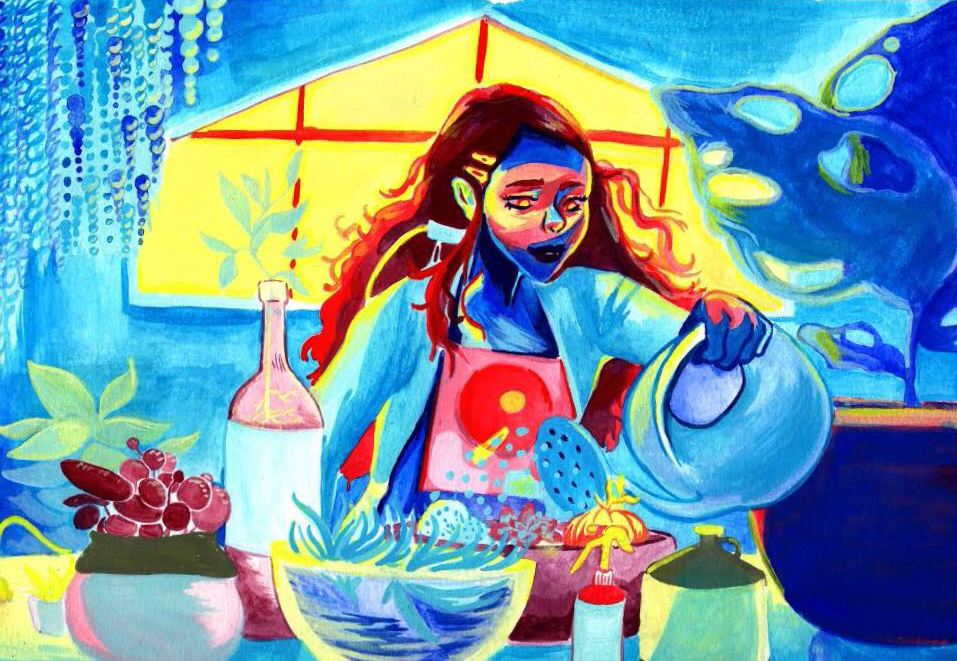We are celebrating this Valentine’s Day with a little self-love advice from the amazing and brilliant Ali Szarko (psychology/behavioral science PhD student at UNR). With all this love in the air and all the pressures and expectations that can come along with Valentine’s Day, Ali is back to remind us of the importance of self-love and is continuing her Self Love Series with quarterly posts here on the HP blog. Be your own Valentine today and learn more about what self-love is below. Be sure to check back periodically for more helpful tips, exercises, and advice on how to better love you and maintain a healthy relationship with yourself!

Self-Love: What is it? – by Ali Szarko
Self-love is a ubiquitous yet nebulous term. The dictionary defines the action of “love” as “to like or desire actively” (Merriam-Webster, 2020). The word “self” defined as “an individual’s typical character or behavior” (Merriam-Webster, 2020). One definition of “self-love” could then be: to like or actively desire one’s own typical character or behavior. A person’s character is defined by the recurring, predictive qualities of their actions. It’s our habits. The small actions we take every single day, which are relatively stable and consistent across long, relative spectrums of time. Self-love could then also be defined as: the action of observing one’s own daily habits, and evaluating these actions in relation to our own self-identified criteria of “likeable” and “desirable”, and then making necessary changes to move closer toward that criteria. Self-love is subjectively defined. It’s not up to others to tell you what’s truly important to you, nor is it up to others to tell you what kind of person you want to become.
Challenges with self-love often arise when we don’t know who or what is truly important to us. Conflict arises when we don’t know which qualities of being and doing matter most in a given moment. When we lose touch with our own values, we lose touch with our sense of self. One reason self-love can be challenging may be due to the transient, impermanent features of the self. Humans are continually changing in relation to their personal experiences. A self-identified criteria of “desirability” for which to evaluate our own habits—and others habits—in relation to, is a continuously changing, ongoing process. This is because people are continuously evolving, changing, living things. What was important to you many years ago, may not be important to you today. What may have been important to you yesterday, may not be important today. What’s important in one situation, may not be important in another. It depends on the context.
Learning self-love requires continuous self-reflection and self-clarification. The Holland Project Self Love series will provide easy, habit changing tips and strategies for learning how to healthfully reflect and clarify who and what matters to you, as you adapt and change over time. This blog will also provide tips and strategies on how to navigate the typical challenges that arise when you pursue what is important to you and how to move in a values-based direction despite those obstacles.
Self-Love is Self-Defined.
Each post, we are going to ask one self-love thinker what self-love means to them. This month, we asked Evynn McFalls, M.A., Institutional and Community Literacy Researcher, what self-love means to them:
“To me, self love is a constant, conscious exploration of the universe of factors that come together to make us the people that we are—and a lifelong endeavor to compassionately accept or negotiate with those factors toward our mental, physical and philosophical nourishment. It is understanding that I have advantages and obstacles, beautiful inspirations and painful triggers, and getting to know each of them as though I were coming to treasure a friend.
I may not always like or enjoy all of the parts of myself that make me who I am. Some days I don’t like my smile, or how moody I can be. Other days I love my wicked sense of humor, and that I am sincere and encouraging to others. As I develop a consistent, exploratory practice of self love, I learn to appreciate—and even take joy and amusement in—the unique topography of self that each of us possesses.
Self love means curiosity, compassion and excitement about the art and science of me.”
To learn more about Evynn, you can visit their website: www.evynntyler.com
To learn more about the Holland Project Self Love Series, you can follow @globalselfloveclub on Instagram. Read more in this series.
